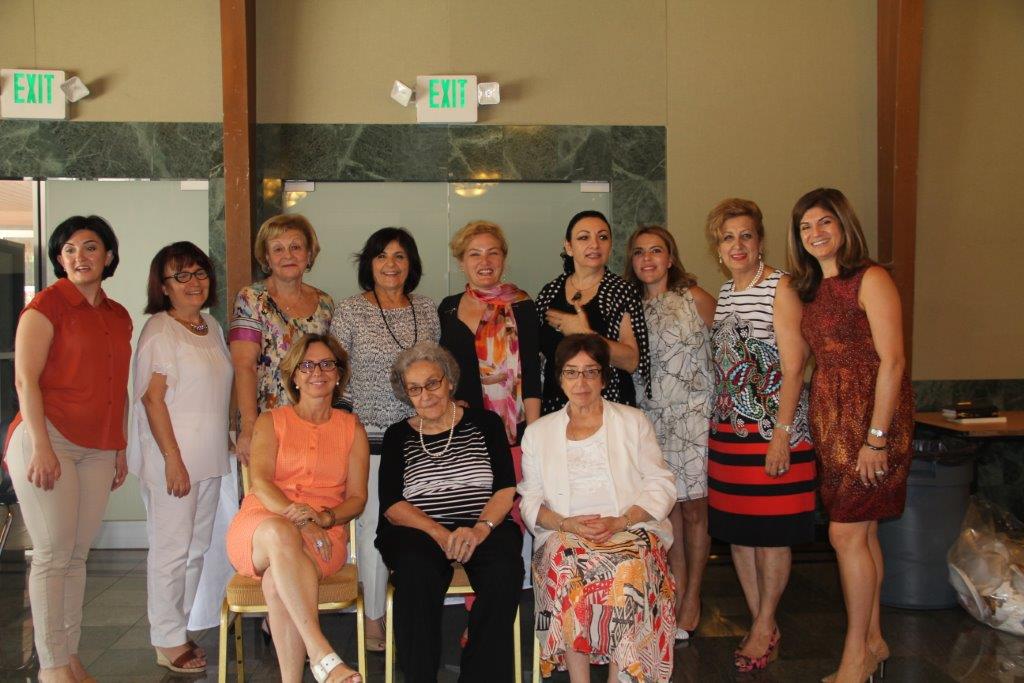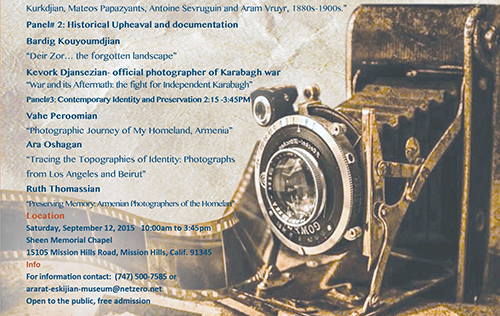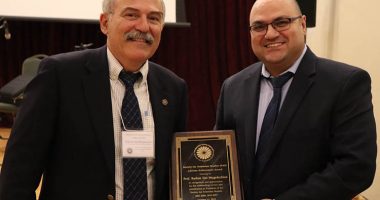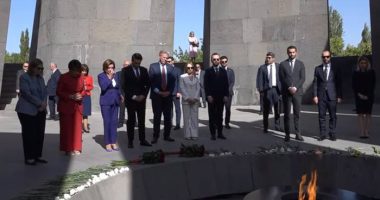By Sona Zeitlian
On Saturday August 22, AGBU Hye Geen presented a discussion on globalization and the challenges to Armenian women. The event took place at AGBU Vatche and Tamar Manoukian Center, in the presence of a capacity audience, curious about the cultural and social effects of a technological innovation of out time.
In her opening remarks, Sona Yacoubian, founder and chairperson of AGBU Hye Geen, acknowledged the inevitability of globalization prompting one generation to focus on preserving our distinctive language and identity, whereas a younger generation is engulfed in the rapid pace of technological development and of instant communication. In these circumstances, Armenian women face the challenges of globalization by seeking new tools to adjust to changes and in the meantime, steadfastly maintaining our cultural heritage.
The first speaker was Mary Terzian, who has served in the Foreign Service, is the award-winning author of a first novel and has newly published Politically Homeless, a five-year odyssey across three continents.
She referred to such aspects of globalization as speeded up telecommunications, reducing the significance of barriers between nations and, in a spirit of interdependence, the ease of transference of goods, services and ideas. As information and people travel across the world in a much shorter span of time, it affects economic growth, global competiveness, as well as the development of an essential infrastructure.
With its marked advantages, the speaker pointed out that “globalization will eventually impose a universal language to ease interaction between nations.” She also stressed the need to adjust to foreign cultures “without sacrificing our individuality,” or national identity.
Paying homage to the “implacable creative ability of Armenians” and “a stubborn determination to extract bread from stone,” Mary Terzian felt optimistic about the effects of globalization in the improvement of Armenia’s higher education, efficiency of institutions, and the expanding scope of internet technologies, hopefully leading to a balanced development of the state.
The second speaker was Nelly Titizian-Kazman, winner of the 2013 Administrator of the Year award at the University of La Verne. She is also an adjunct professor at the same institution, writing and lecturing on leadership, culture and gender issues in management, and power politics in organizations.
Nelly Kazman began by the adage that “the world is a global village,” then stressed the need to develop both personally and professionally to meet the challenges of a globalized world. In a lively presentation, she dealt with the different ages of women, focusing on the attributes and challenges of each age group.
The Traditional Armenian woman has a strong sense of identity and is devoted to her family. She faces the challenge of managing today’s social and cultural diversity, and lacks the tools to adjust to the mainstream culture. The woman belonging to the Baby Boomer generation, is professionally skilled and “resilient to navigate the turbulence” between “the Middle Eastern and the Armenian identity.” She faces the challenge “to juggle her professional and home life” and feels the pressure “to preserve her Armenianness.” The Millenial Armenian woman is “career oriented and technology savvy.” Marriage and the needs of her family are no longer uppermost in her life. She faces the challenges of “managing her dual Armenian/American identity,” is keen on “meeting global standards” and is upwardly mobile by “communicating effectively.” Finally, today’s girls readily embrace change, resent parental or other types of control and seek “to speak with their voice and find their own truth.”
After two thoughtful and invigorating presentations, the concluding remarks were delivered by Prof. Osheen Keshishian, publisher/editor of the Armenian Observer newspaper. He welcomed the enrichment and expansion aspects of globalization but warned against economic corruption and loss of jobs due to automation. He also dwelt on the fading of our identity, endangered language or even commitment to our national Church. On the other hand, he stressed the importance of higher education for girls as key to the revival of national consciousness and as a means to conquer the challenges of modern times. Educated girls can also be resourceful in maintaining the family solidarity. On the other hand, having survived without the support of a state for centuries, Armenia needed to nurture our national identity and sense of national belonging.
The different speakers brought clarity to a complicated subject that has emerged within the last three decades. In this sense, AGBU Hye Geen was once again true to its mission of enlightening and empowering Armenian women, and ultimately promoting both national and civic consciousness.
As a tribute to that mission, Elena Semerdjian, the public relations coordinator of California Assemblyman Mike Gatto, presented a signed and sealed certificate of recognition, congratulating AGBU Hye Geen for “dedicated leadership to preserve and promote Armenian women and their history.”
By all accounts, AGBU Hye Geen’s August 22 event was a most fulfilling experience.










